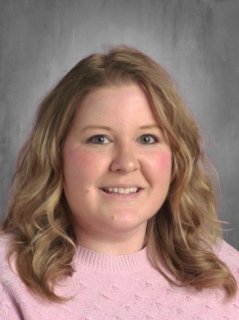Kathleen Podraza

Kathleen Podraza of Winnebago has been teaching English at North Boone High School 12 of her 15-year teaching career. Student nominations said she makes learning fun, helps them understand and makes them love class! Principal Marc Eckmann wrote, “she is one of those rare individuals blessed with a high intellect paired with the ability to communicate [it] with a grace, understanding and confidence that allows students and colleagues to feel comfortable learning and taking risks.” He added, “Our students are better readers, writers, listeners and speakers because they’ve had [her] as a teacher during their high school years.” Kathleen says she’s been guided by a quote from “Mr. Holand’s Opus.” “A teacher has two jobs: fill young minds with knowledge, yes, but … give those minds a compass so that knowledge doesn’t go to waste.” Kathleen now takes that principle further, leading students to become their own compasses to set their individual paths. A former teacher, now instructional coach, wrote she “is clearly motivated … to help students reach their potential. She is a tireless worker, a creative and collaborative thinker, an advocate for young adults and a woman of integrity.” Kathleen also teaches a dual credit English course she added at North Boone, which grants Rock Valley College credit upon completion. Eckmann says, “additionally, they mastered skills and processes that have prepared them for life outside high school.” She constantly evaluates the way students learn and what engages them. She incorporates technology so students can create podcasts, PowerPoint or Canva presentations. Public speaking classes don’t just prepare speeches for groups; they also learn about speaking occasions like toasts, award acceptances, apologies or announcements. Kathleen knows her content and how to bring out desired responses. She also gives students the responsibility of listening then asking each other thought-provoking questions. Classroom observers saw how eagerly students participated and how Kathleen energetically praised them. Simple responses like “good,” are not enough though. She gently and supportively urges them to think more deeply and critically. And they do!
